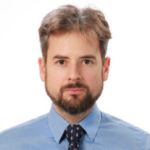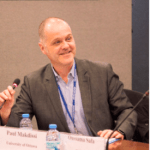
Optimised Multidimensional Poverty Reduction. A Model Based on Policy-Makers Capabilities
Wednesday, February 8, 2023
10:00 am - 11:00 am
This study supports national planners at determining the types and magnitudes of interventions, and the specific population groups that should be targeted to achieve a desired reduction in the Multidimensional Poverty Index (MPI) efficiently. In the post COVID era, survey data and MPI methods aim to assess the impacts of COVID-19 on multidimensional poverty. This study proposes models guiding policymakers on the path to recovery from COVID-19 (or any other emerging crisis) and toward meeting the 2030 Agenda Goals, thus ensuring efficient policy action and efficient resource allocation.
Speakers:
Vladimir Hlasny, economic affairs officer with UN-ESCWA (Beirut), Poverty and inequality research team. Previously an associate professor of Economics at Ewha Womans University (Seoul). His work is on labor market conditions and the distribution of economic outcomes in Asia and the Middle East. His research has been published in general-interest journals including the World Bank Economic Review, Review of Income and Wealth, Journal of Regulatory Economics, Development and Change, and Social Science Quarterly. PhD in Economics from Michigan State University.
Hassan Hamie, economist with UN-ESCWA (Beirut), Poverty and inequality research team. Previously worked as an engineer for the Lebanese Petroleum Administration. Currently working on the topics of poverty, Inequality and inclusive development. PhD in Energy Economics from Technical University of Vienna.
Discussant:
Paul Makdissi is a professor at the Department of Economics of the University of Ottawa. He is currently an Associate Editor of the Journal of Economic Inequality. Previously he has held positions at the Université de Sherbrooke (Canada) and the Vrije Universiteit Amsterdam (The Netherlands). His main areas of research are socioeconomic health inequality measurement, the distributive impact of taxation and public pricing, and income inequality measurement. He was the president of the Société canadienne de science économique (the French Canadian economics association) for the 2021-2022 academic year. From 2017 to 2019, he was the thematic leader for the Equity and Inclusive Growth research theme for the Economic Research Forum for the Arab Countries, Iran and Turkey. He has also been a consultant for many federal and provincial ministries and agencies in Canada, the World Bank, and the United Nations Economic and Social Commission for Western Asia.



